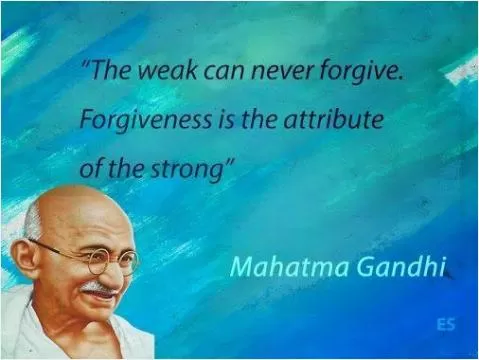They cannot take away our self respect if we do not give it to them

They cannot take away our self respect if we do not give it to them
Mahatma Gandhi, also known as the Father of the Nation in India, was a prominent leader in the Indian independence movement against British colonial rule. He was a firm believer in nonviolent resistance and civil disobedience as a means to achieve social and political change. Gandhi's philosophy was deeply rooted in the idea of self-respect and self-reliance, and he often emphasized the importance of maintaining one's dignity and integrity in the face of adversity.One of Gandhi's most famous quotes is, "They cannot take away our self-respect if we do not give it to them." This statement encapsulates Gandhi's belief in the power of individual agency and self-worth. Gandhi understood that true freedom and liberation could only be achieved when individuals refused to allow others to diminish their sense of self-respect and dignity.
Throughout his life, Gandhi faced numerous challenges and obstacles, both personally and politically. He was imprisoned multiple times, faced violence and persecution, and endured criticism and opposition from various quarters. However, Gandhi never wavered in his commitment to his principles and values. He remained steadfast in his belief in the inherent worth and dignity of every human being, regardless of their circumstances or background.
Gandhi's philosophy of self-respect was not just a personal belief, but a guiding principle in his approach to social and political activism. He believed that individuals had the power to resist oppression and injustice through nonviolent means, and that by maintaining their self-respect, they could inspire others to do the same. Gandhi's philosophy of self-respect was not about arrogance or pride, but about recognizing one's own worth and standing up for what is right and just.












 Friendship Quotes
Friendship Quotes Love Quotes
Love Quotes Life Quotes
Life Quotes Funny Quotes
Funny Quotes Motivational Quotes
Motivational Quotes Inspirational Quotes
Inspirational Quotes